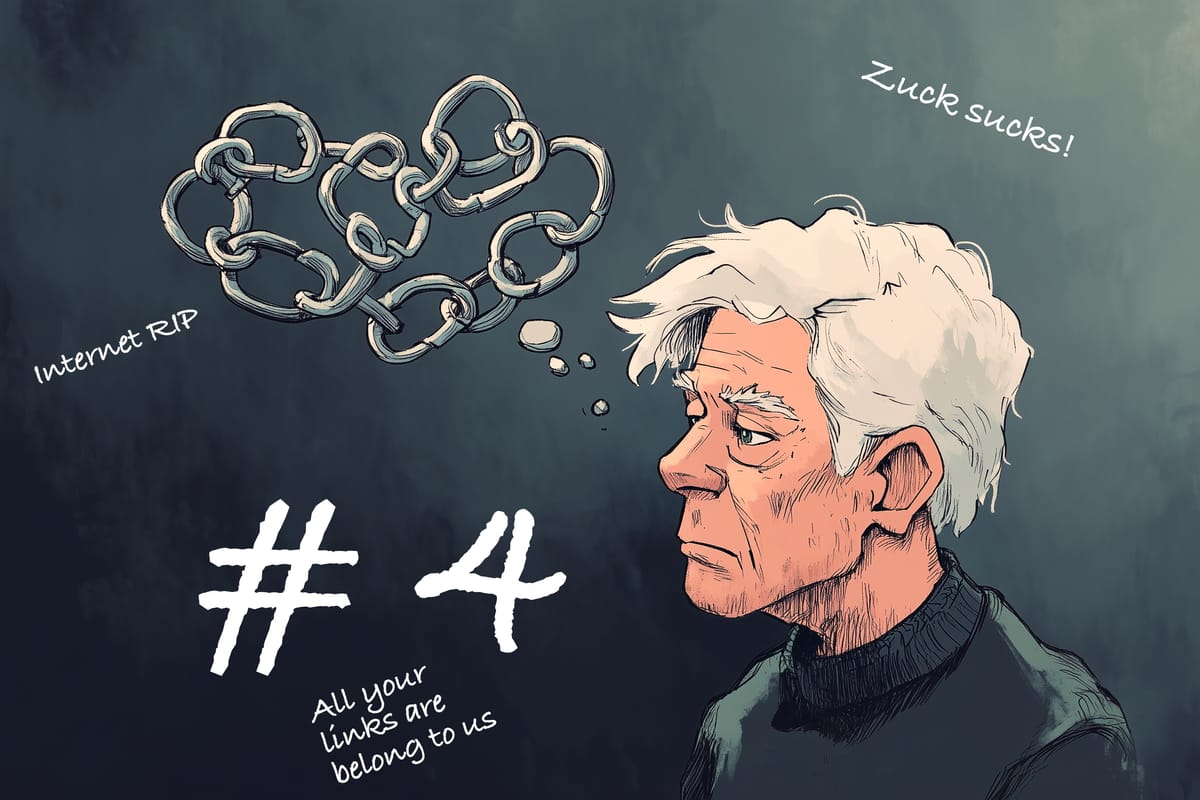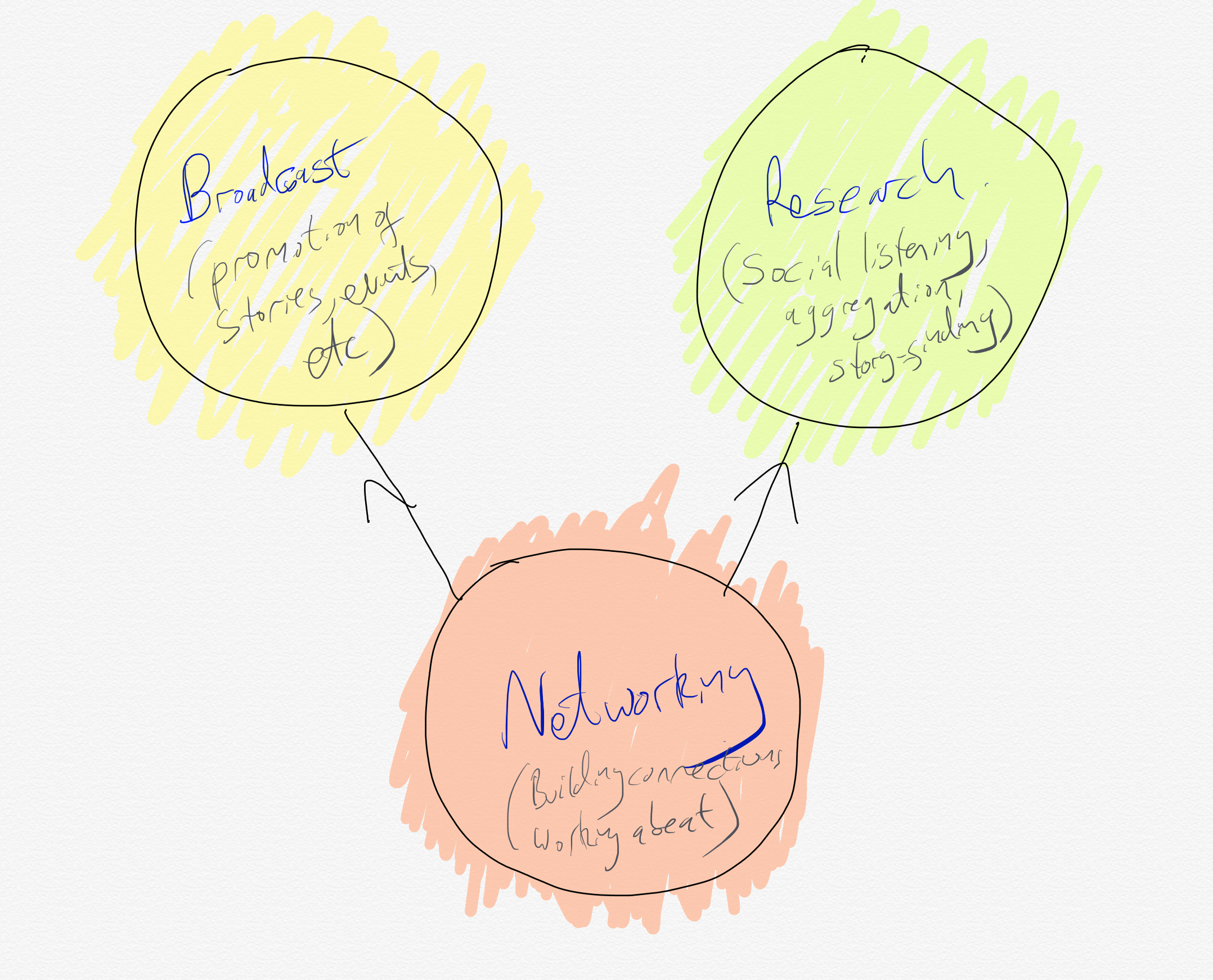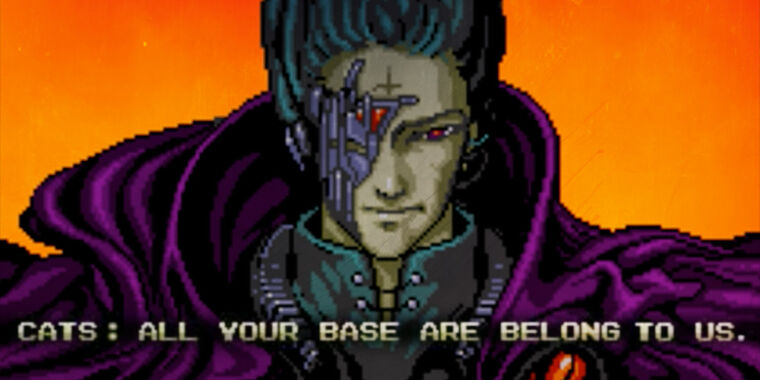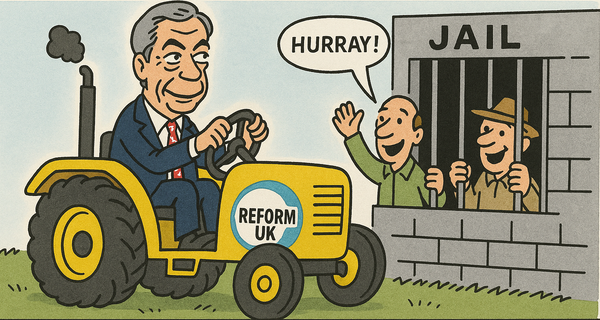Missing Links & Unfinished Thoughts: False Prophets and Useful Tools
More gems from the published archive, looking at the problem with media innovation, and the first real meme…

Number of drafts remaining: 97
Age of oldest remaining draft: 8 years
Media's false prophets
Nine years ago, I was all ready to link to an excellent rant from Rafat Ali. I would do so now, only there's a slight problem.
We'll come back to that.
You can get some sense of what the rant was about from this post:
I’ve spent the better part of my life – or so it seems to me; see above – shocked at how little effort there is, institutionally, to stay on top of emerging tools and technologies, to have constant conversations about how these new tools, these technologies, can be harnessed to the goal of making storytelling structures better. (Hey, while on this – if you have anything at all to do with storytelling, do follow Journalism Tools. You can thank me later – I have plenty of reason to thank that account.)
And yes, exploring new tools and new opportunities for storytelling is important, but, well, the reason I can't link to the rant directly is that the tool both Prem and Rafat used to collate his Twitter rant — Storify — is long dead. There's just a big old space in both articles where the embed of it should be.
So, yes, experiment with tools. But be aware that digital tools can go away at any time. And prepare for that.
The rant, recovered
I spent a little useful procrastination time hunting down the original rant on X, and yes, it still rings true today. Here's the beginning of the thread:
The number of hyped people who fail upwards in media (and digital media) is incredible, sustained by larger orgs' own existential fears.
— Rafat Ali, Media Operator & Dad (@rafat) November 25, 2014
And here's the rest of it in a format that's likely to last: good old fashioned HTML:
There's a whole "fail upwards" cabal in media-tech, that scratch each others' backs, building on privileges akin to "white privilege." They're buried everywhere in orgs, from corp dev to BD to VC arms to cross-function roles, with mandate to make everybody's life miserable. They're also "we're a startup" crowd within large orgs, that invariably fail at any innovation-in-a-box projects. They're also people v good at getting their projects/positions written up in places like USAT, NPR, NYT, Guardian & other gullible media.
The shit that media is in now is in large part the result of the sustaining power of this incompetent fail-upwards crowd. This ends my rant.
And that's as true today as in the past. And also applies to big names from traditional media who keep getting funding for emergent media projects. A “Gen Z-focused” startup springs to mind, whose covered has been somewhat… uncritical so far.
Experimenting with tools
Four years later, I returned to the theme, but never found the perfect intro par, so never published it… But here it is:
We are not good at looking at a new tool, and thinking “how can this change the way we do our journalism?”, rather than “how can we use this tool in the journalism we already do?”
The distinction is subtle, but important. One is harnessing the tool to our existing processes, one is exploring the potential that the new tools bring to change our processes for the better.
For example, one of the great weaknesses of the way many communicators view emerging social media platforms is that they see them as nothing more that ways of advertising content on their website. That’s only one the the three ways most people can use social media:

While the broadcast element of this is important, and getting readers to the site is often critical, it’s not everything. Networking and research as just as important.
(It’s arguable that many social media native types, and influencers in particular, make a similar, but opposite mistake - they build their relationships solely on social platforms, without any owned space at all. That leave them completely at the mercy of the whims of the platforms, as many YouTubers have been finding out to their cost.)
Until we embrace the idea that tools matter, that more tools are better than fewer tools — and that we need to adapt we do, based on the tools, rather than trying to twist our tools into our existing forms, we’re never going to move forward in truly embracing digital.
Yeah, it's depressing that these pieces make sense to publish nine years and four years on, respectively…
All Your Base Are Belong To Us Old Folks
As it's my birthday today, and I am old, this seems appropriate:
One of the very oldest internet memes hit 20 years old earlier in the month [23 years now]. Here's a great history of that moment:

There's also a short Verge article which has one good insight:
Watching it now, 20 years later, the thing that stands out to me most is how culturally dated the video feels. It’s from the era of internet culture when the whole joke was getting the reference; back then, the internet was much harder to access and not the kind of culture-defining trend machine it eventually became. Knowing the reference — and sneaking it in places it didn’t belong — was funny because not everyone could figure out what it meant, unless, of course, you were part of the tribe.
I miss the time when there was a distinct seperation between internet culture and general culture. The blending of the two has not been kind to either.
Something to watch
SmugMug (yes, the photo-hosting site), did this great series of video profiles of photographers a couple of years back. The Jay Ford minidoc was particularly interesting:
And Finally… A tale of SEO woe
Sometimes Google gets things clearly and unequivocally wrong. This is one of those times. Read this whole thread to see how…
In recent months I've seen various people complain about the apparently degrading quality of Google search results, so here's how we have gone from being a renowned independent publisher to one of the internet's least satisfying fetish sites (a quick/not entirely-sfw 🧵):
— Canongate (@canongatebooks) October 10, 2022
My best guess as to what's happening? It's about the anchor text used to link to the book in question….






